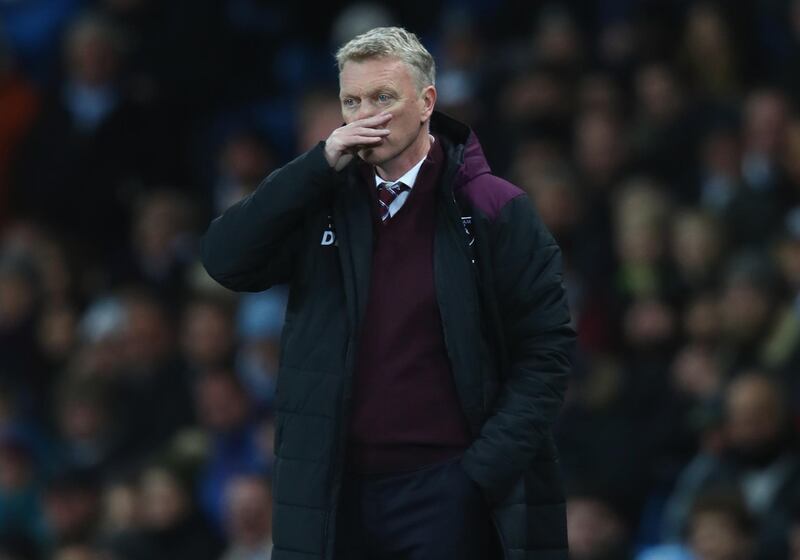David Moyes received an honorary degree this week, a fellowship that reflected his contribution to football management. Typically, given Moyes’s recent fortunes, the timing felt a cruel joke.
The Scot was recognised by the University of Central Lancashire in his adopted home town of Preston. It came at a time when he has one point from four games in charge of West Ham United, a start that, with matches against Chelsea and Arsenal in the next few days, could become one in six.
As it is, his last 43 Premier League games have produced just six wins and a mere 25 points. If West Ham, rooted in 19th, require a result on Saturday, so does Moyes.
His side surpassed many expectations to run Manchester City close, but a 2-1 defeat - again featuring a late goal - mirrored his debut as Sunderland manager. Moyes's post-Everton career has featured many an unkind setback, along with a sprinkling of truly ignominious affairs.
His last two matches have included both scenarios and highlighted part of Moyes’s increasing problem: striking the right tone at a point when he has acquired the wrong sort of reputation. His 11 years at Everton were underpinned by grim realism.
Transferred into other environments, it has come to appear a self-defeating pessimism.
______________
Read more
Premier League predictions: West Ham get crushed by Chelsea
[ Highly combustible but Guardiola is City's master problem solver ]
[ Watford defeat shows scale of task facing Moyes at West Ham ]
______________
Moyes is intelligent and sensitive enough to be aware of the criticisms. The difficulty for a man who is not naturally one of management’s boasters is to reshape perceptions without making statements that sound false to him, let alone anyone else.
The challenge is saying the right things at the right times.
After the 4-0 thrashing at Goodison Park, when West Ham were hammered by a team who had appeared in meltdown, Moyes searched for an imaginary positive and said: “I thought we played much, much better in the second half."
Four days later, and after a genuinely improved display against City, he stated bluntly: “We were rubbish against Everton.”
In the same vein, Moyes marked his appointment by pronouncing himself an attacking manager. Manchester United fans are unlikely to agree. Even at Everton, Moyes’s teams were notable more for collective determination than incessant entertainment.
But he is conscious of the supposed "West Ham way", a concept Sam Allardyce scorned, and his own image. Yet both West Ham’s fixture list and a defensive record that ranks as the worst in the division suggest the priority is more characteristic for Moyes: keeping goals out.
As he pragmatically accepted, they were not going to outplay City. They had to concentrate on defence. The same policy may be adopted against Chelsea and Arsenal, before Moyes can display his supposedly attacking intentions.
With centre-back, full-back and midfield injuries, it renders the last line of that porous defence more significant. It is there that the first major decision of Moyes’s reign beckons.
Adrian's saves against Manchester City
🙌 @AdriSanMiguel! pic.twitter.com/11Xj0cb6at
— West Ham United (@WestHam) December 6, 2017
The 54-year-old manager initially sounded a little underwhelmed by Adrian’s excellent performance against City, implying his saves were the sort he ought to make. Then hints emerged this week that Joe Hart, ineligible to face his parent club on Sunday, would not be parachuted back into the team against Chelsea.
High profile, better a few years ago than he is now and seemingly signed by publicity-hungry owners, Hart seems the personification of what is wrong with West Ham.
His status means Moyes is under the microscope before the game kicks off. A reputation as "Dithering Davie" has followed him. There was the sense at Manchester United that he lacked the conviction to take some major moves.
It is only four games into his reign, but a manager who has seemed a passive victim of fate rather than someone who shapes his own future should not duck a decision now.






